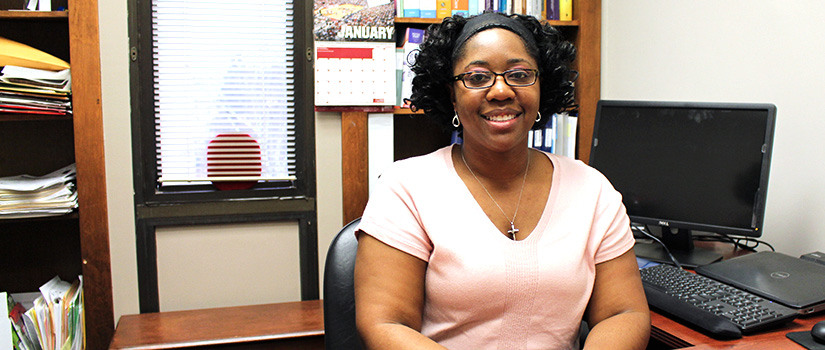Posted February 8, 2016
By Annie Lambert, Director of Alumni Engagement
Students in the College of Nursing now have a new resource to take advantage of that will ensure they get the most out of the undergraduate experience. Joynelle Rivers, EdD, MSN, RNC, was named director of undergraduate scholar engagement and research this year, and has been tasked with helping students achieve their research and leadership goals.
Dr. Rivers works with undergraduate nursing students to help them form connections with faculty so they can perform research and further their scholarship. “We’ve always had students interested in research, but there’s never been a person to formally help them make those connections. That’s what I’m here for,” Dr. Rivers said.
The University of South Carolina offers many research and scholar initiatives campus-wide, though Dr. Rivers mainly works with nursing students interested in two in particular: the Magellan Scholar program through the Office of Undergraduate Research and graduation with leadership distinction through USC Connect.
The Magellan Scholar program pairs students with a faculty mentor and provides them with a $3,000 stipend to utilize as they see fit for their research project, allowing students to gain experience as a grant-funded researcher. Graduation with Leadership Distinction includes four tracks that students can choose between: Research, community service, global learning and professional and civic engagement.
“I like to suggest students pair the Magellan Scholars program with the leadership distinction in research. So many of the requirements overlap so when I develop a curriculum for them, they are able to get it all done and accomplish two really awesome things,” Dr. Rivers said.
Nursing students interested in taking advantage of research and leadership opportunities are encouraged to visit the Office of Undergraduate Research website to see what they offer, then contact Dr. Rivers to set up an appointment. She will provide students with a short survey to learn their interests and capabilities then will meet with each student to determine the best course of action.
"I tell students to do a little of their own research before coming in to meet with me. It’s not a requirement, but if you can, that makes the conversation that much more solid because you have a plan and I can help you get there,” said Dr. Rivers.
One thing she’d like all students to know is that research doesn’t have to be terrible. “If you’re not doing something you love, then it doesn’t have meaning. As a researcher, if you love what you’re researching, you’re more interested in it,” she said. “Let’s let you love your idea and then I’ll help you get there. I’m kind of big on that. You’ve got to love it.”
